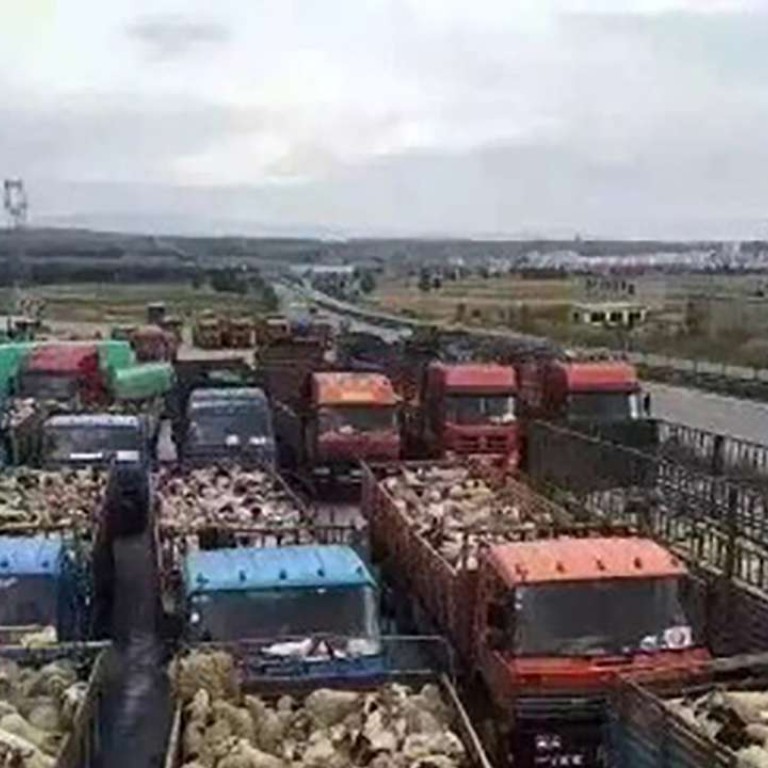
Woman criticised as irresponsible for freeing 6,000 sheep in remote China
While some praise her act of kindness, others say the fragile high-altitude grasslands are already suffering from overgrazing
A woman who set 6,387 sheep free as part of a Buddhist ritual in the southwest Chinese province of Sichuan two weeks ago has come under fire online from conservationists who say the release of the animals could damage the local ecosystem, mainland media reports.
The woman, named Zhuoma, claimed to have bought these sheep – which were released on August 30 – from slaughterhouses in neighbouring Qinghai province, using 5.1 million yuan (HK$5.9 million) she raised from nearly 100 “kind-hearted” Buddhists, The Beijing News reported on Saturday.
While some internet users praised her action as “infinite merits, caring for the lives of all species”, others – including the local environmental protection bureau – said the release of such a large number of sheep would put massive pressure on fragile high altitude grasslands already suffering from overgrazing.
Zhuoma later responded via Wechat, the instant messaging app, that the sheep were being kept temporarily by local farmers, and that she didn’t just set them free randomly.
Releasing captive animals is an ancient practice of Buddhists who believe it can give them spiritual credit.
Once seen as kindly behaviour, the practice is now blamed for multiple environmental problems from the release of non-native species into delicate land or water ecosystems where they quickly become invasive.
Another criticism is that the practice also encourages the capture of more animals to be sold to Buddhists who want to release them.
The sheep were freed in Shiqu and Seda counties in Sichuan, a region mainly populated by Buddhist Tibetans.
The Chinese Wild Animal Protection Law, which comes into effect on January 1, 2017, includes provisions to regulate the freeing of animals.

